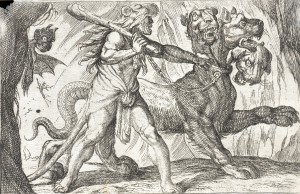
A guest post by Sarah Scott
I am normally a pretty fast reader, but during the HeroesX project I loved Professor Nagy’s encouragement to us about really engaging with the texts, when he quoted Nietzsche: “read slowly, deeply, looking cautiously before and aft, with reservations, with doors left open, with delicate fingers and eyes.”
As I started to slow read the focus passages, and read Professor Nagy’s argumentations in The Ancient Greek Hero in 24 Hours, and engaged in discussions with other participants, I gradually started to find in myself a way to make connections with the texts, contacts with the hero culture; a way that did indeed keep doors open so that next time I read the passage I could explore a little deeper, or go through a doorway that opened a new roomful of possibilities.
Professor Nagy had promised that in time “slow reading will actually be an easier and more natural experience than fast reading” and I have come to realise just how true this is—and each time I look there is something else to discover. So I wanted to relish the journey by engaging in detail with a text that was new to me, the Herakles of Euripides, and to apply the concepts and connections that I had been learning about during my experiences in both HeroesX projects. I have not read the whole play yet, but instead I am reading a short section at a time in order to focus on it in depth.
I am sharing my thoughts and impressions in the Forum as I go, and would welcome further discussion and feedback from other members of the community about any of the passages I have looked at so far. And if anybody would like to go on and discuss the next section, please go ahead and add it to the thread so we can all share our slow readings.
Sarah Scott is a technical author who lives in Scotland. She took part in both iterations of HeroesX, being one of the Community TAs in v2, and has a lifelong love of language, literature and learning.